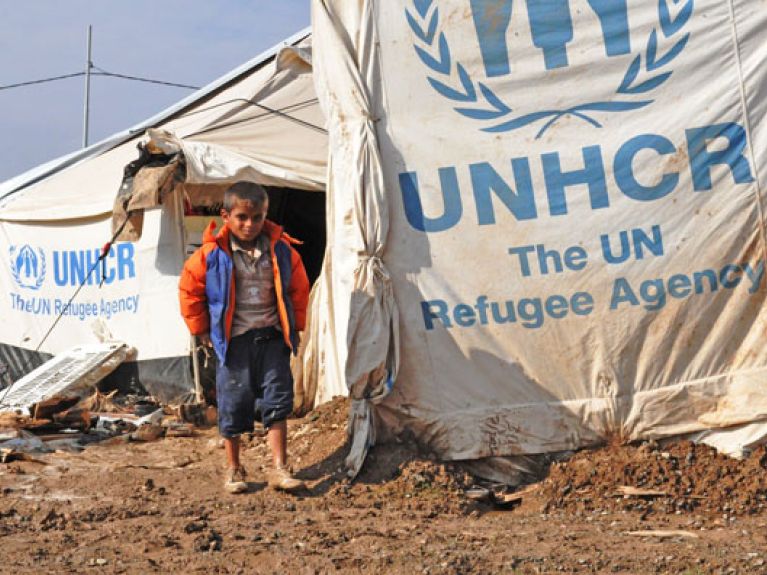Under difficult conditions – the UNHCR in action
Since its foundation the UNHCR has helped more than 50 million people to build a new life. Today the assistance provided by its staff is more necessary than ever.

Huda Al-Shabsogh’s working day has a tight schedule. The Jordanian field officer gets up at 5:30am. On Wednesdays and Sundays she and her colleagues visit refugees. They usually set off at 7am. “So that we can get as much done as possible,” she says. They meet at least 200 families a day, sometimes as many as 300. Huda Al-Shabsogh, a law graduate, has been working for the UNHCR, the United Nations Refugee Agency, for a number of years. The UNHCR is part of the emergency relief team in Jordan that visits the Syrian refugees who are not living in Zaatari refugee camp, but have found private or some other form of accommodation. On the UNHCR website she says: “We advise refugees on a range of topics: how to register as a refugee; how to enrol their children in a school; what to do if their children are ill. We also make appointments to register them with the UNHCR in Amman.”
The Jordanian woman is one of UNHCR’s over 9,300 members of staff in 123 countries. They all have one goal: to protect refugees. That also involves ensuring international agreements on the protection of refugees are adopted widely and observed by governments. The UNHCR helps host countries with humanitarian emergency and disaster relief and organises basic supplies for the people affected. In addition to financial grants, it also provides material goods such as tents and blankets. Together with a large number of NGOs and partners, the UNHCR also supplies food and technical equipment. Since its inception it has helped over 50 million refugees to build a new life – an achievement that won it the Nobel Peace Prize in 1954 and 1981. Germany is one of the UNHCR’s most important supporters. In 2015 the Federal Government supported the work of the UNHCR worldwide with over 148 million euros in funding. In Germany, the main focus of activity is on the provision of legal protection for asylum seekers and recognised refugees. Germany has been a member of the UNHCR’s Executive Committee since 1958. ▪

